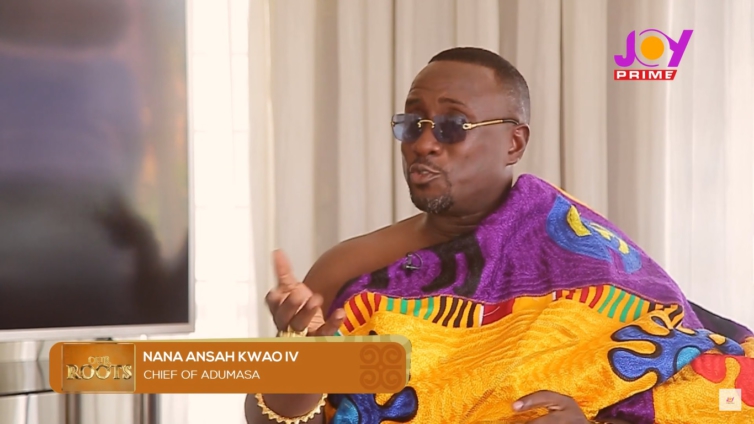The Chief of Adumasa in the Eastern Region, Nana Ansah Kwao IV has revealed that Akan chiefs wield authority and not power.
According to him, the traditional rulers in an Akan setting do not practice a dictatorial style of leadership. Instead, power and authority are shared such that the chief works hand in hand with the council of ministers to ensure peaceful rulership and development in the society.
Nana Ansah Kwao IV mentioned that the forefathers thought it wise to give authority to chiefs and power to the council of ministers because they realised that absolute power is corrupt.
Hence, chiefs in the Akan society do not have the power to use their authority, and the council of elders also does not have the authority to use their power.
"So as a chief, I have 99% of the authority but almost no power. The power, however, is split up in small pieces among my ministers, but they don’t have authority. So they don’t have the authority to use their power, and I don’t have the power to use my authority. At any given time, before a chief makes a move, he has to consult his ministers," he said.
This, according to him, eliminates dictatorship and helps chiefs be directly accountable to the people. This also promotes good governance in society and paves the way for development to take place.
Nana Ansah Kwao pointed out that though the system of governance in Ghana has changed, the roles of chiefs in the country have not been curtailed. He explained that, currently, the roles of chiefs in Ghana have increased.
According to him, in recent times, chiefs have found themselves stepping in to help curb and solve issues that the government sometimes fails to solve in the community, aside from the roles originally set up for them to follow.
"The role and responsibility of the chief are way greater than they used to be. People will come and complain about problems they face in their schools, hospitals, and many more places. So the role and responsibilities of chiefs now are unenviable. Everything falls under the jurisdiction of the chief."
Ansah Kwao IV apologised to the youth of Ghana, who, by no fault of theirs, have become ignorant about the culture and its practices.
He also pointed out that the rites performed in stooling a chief have no spiritual hands involved and asked youths not to believe the myths that say otherwise.
He however encouraged the youth to go back to their community of origin and learn more to help them stay abreast with their culture, keep it alive, and pass it down to future generations.
Latest Stories
-
Cedi gains unsustainable without real sector growth – Prof Lord Mensah warns
28 seconds -
Otumfuo Osei Tutu II Foundation donates essential equipment to Manhyia Gov’t Hospital
2 minutes -
Ghana gets $220m from Newmont’s $1billion Sale of Akyem Mine
10 minutes -
First National Bank appoints Adwoa Boateng Addo as Chief People Officer
16 minutes -
Trump administration to scrap police reform measures in some US cities
17 minutes -
Gatsi, Kwakye, 4 others appointed as advisors to BoG Governor
21 minutes -
Gideon Boako questions Goldbod’s $3bn spending overrun
26 minutes -
Verified: Bawumia’s claim NDC gov’t has added less than one tonne of gold to reserves true
45 minutes -
Don’t Work Ghanaians to Death: Why Raising the Retirement Age to 65 is misguided
53 minutes -
From Africa to Silicon Valley: How David Amuquandoh is changing how the world builds financial products
1 hour -
Photos: Day one of AMA’s decongestion exercise in Accra
1 hour -
Registrar of Companies assures support for companies on verge of insolvency
2 hours -
Fear grips Nkawkaw Zongo as three men are gunned down in cold blood
2 hours -
Pass Conduct of Public Officers Bill to ensure ethical governance – Ex-CHRAJ boss Anna Bossman urges
2 hours -
KNUST partners herbal medicine practitioners to improve standards for global market competitiveness
2 hours

